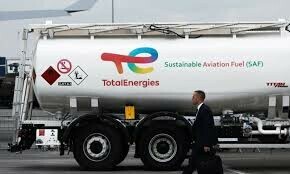ISLAMABAD: The government has decided to cut subsidy for domestic electricity consumers by up to Rs1.65 per unit and impose an ‘equalisation surcharge’ on commercial and industrial consumers with retrospective effect from July 1, 2014 to scale down power subsidy by Rs60 billion to fulfill a commitment to the International Monetary Fund (IMF).
A senior government official told Dawn that a formal request, along with schedule of subsidy for each ex-Wapda distribution company, had been sent to the National Electric Power Regulatory Authority (Nepra) to work out a consumer end tariff for the current fiscal year.
After almost a decade, the Nepra had determined an average tariff reduction of Rs1.04 per unit for the current fiscal year for distribution companies of ex-Wapda in April this year.
The government did not pass on the reduction to consumers and failed to appeal against the Nepra decision within the stipulated 15 days.
As a result, the distribution companies kept on charging higher tariff from consumers and have so far collected more than Rs15bn in May, June and July.
Govt decides to cut subsidy for domestic power consumers.
The government filed a review application before the Nepra against the determined Rs1.04 per unit reduction after almost 45 days and hence rejected by the Nepra for being time barred.
Therefore, under a decision of June 21 meeting presided over by Finance Minister Ishaq Dar, Nepra has been asked to reduce subsidy for various residential consumer categories by a minimum of 24 paisa per unit and a maximum of Rs1.65 per unit to maintain status quo on existing applicable tariffs.
The decision required to freeze existing tariff until March 2015 to meet subsidy target agreed to with the IMF. The government is currently in 10 days talks with IMF in Dubai that are expected to end on Aug 18.
The Nepra had determined lower tariff on the basis of cut on technical loss by 2-6 per cent for various distribution companies for fiscal year 2013-14, raising hopes that domestic, commercial and industrial tariff would come down first time in more than 15 years.
The government has also decided to impose about Rs1 per unit on average equalisation surcharge on commercial and industrial consumers to circumvent implementation of Nepra determination that required tariff reduction.
The amount so generated through equalization surcharge would be used for payment and servicing of Rs239bn loans obtained from banking sector and its mark up for clearance of circular debt in the past.
As a consequence of these decisions, the subsidy for consumers of Lahore Electric Supply Company would be reduced by Rs1.50 per unit while that of Peshawar Electric by Rs2.50 per unit. The subsidy for Hyderabad Electric would be cut by Rs5.15 per unit, Sukkur Electric by Rs5 per unit, while subsidy for Quetta Electric would be reduced by Rs1.91 per unit and subsidy for Islamabad Electric would be cut by Rs2.20 per unit.
The commercial and industrial consumers of Gujranwala Electric Power Company will be provided a subsidy of 92 paisas per unit and 78 paisas per unit while subsidy for commercial and industrial consumers of other distribution companies of Wapda have been done away with. Instead they would now be charged a Re1 per unit as equalisation surcharge to ensure that current applicable tariff remained unchanged instead of coming down as determined by the Nepra.
The decision regarding tariff structure of K-Electric would be decided later and separately, an official said.
The Nepra has been asked to work out fresh tariff schedule on the basis of latest subsidy structure provided by the ministry of water and power so that a fresh notification could be issued by the government.
According to subsidy sheet, the subsidy on first 100 units of domestic consumers of Lahore Electric would come down from Rs5.30 per unit to Rs4.71 per unit. The subsidy on 101-200 units would come down from Rs5.89 per unit to Rs4.39 per unit.
The subsidy on 100 units of Faisalabad electric has been reduced from Rs6.78 to Rs5.30 while subsidy on next 100 units (up to 200) would be reduced to Rs5.89 per unit from Rs7.39.
The subsidy would be available to all domestic consumers of Multan Electric but at a reduced rate.
Its subsidy rate would be cut by 50 paisa to Rs7.21 for first 100 units, but would increase by a rupee on next 100 units, and subsidy of about Rs1.61 would remain available to consumers over 300 units.
The subsidy for Hyderabad Electric and Sukkur Electric would be cut from Rs9.21 per unit to Rs5.27 on first 100 units and from Rs9.13 to Rs4.39 for 101-200 units.
The subsidy for Islamabad Electric would come down from Rs5.21 per unit to Rs4.21 for first 100 units and from Rs6.89 per unit to Rs4.22 per unit for 101-200 units of domestic consumers.
Published in Dawn, Aug 13th, 2014















































Dear visitor, the comments section is undergoing an overhaul and will return soon.